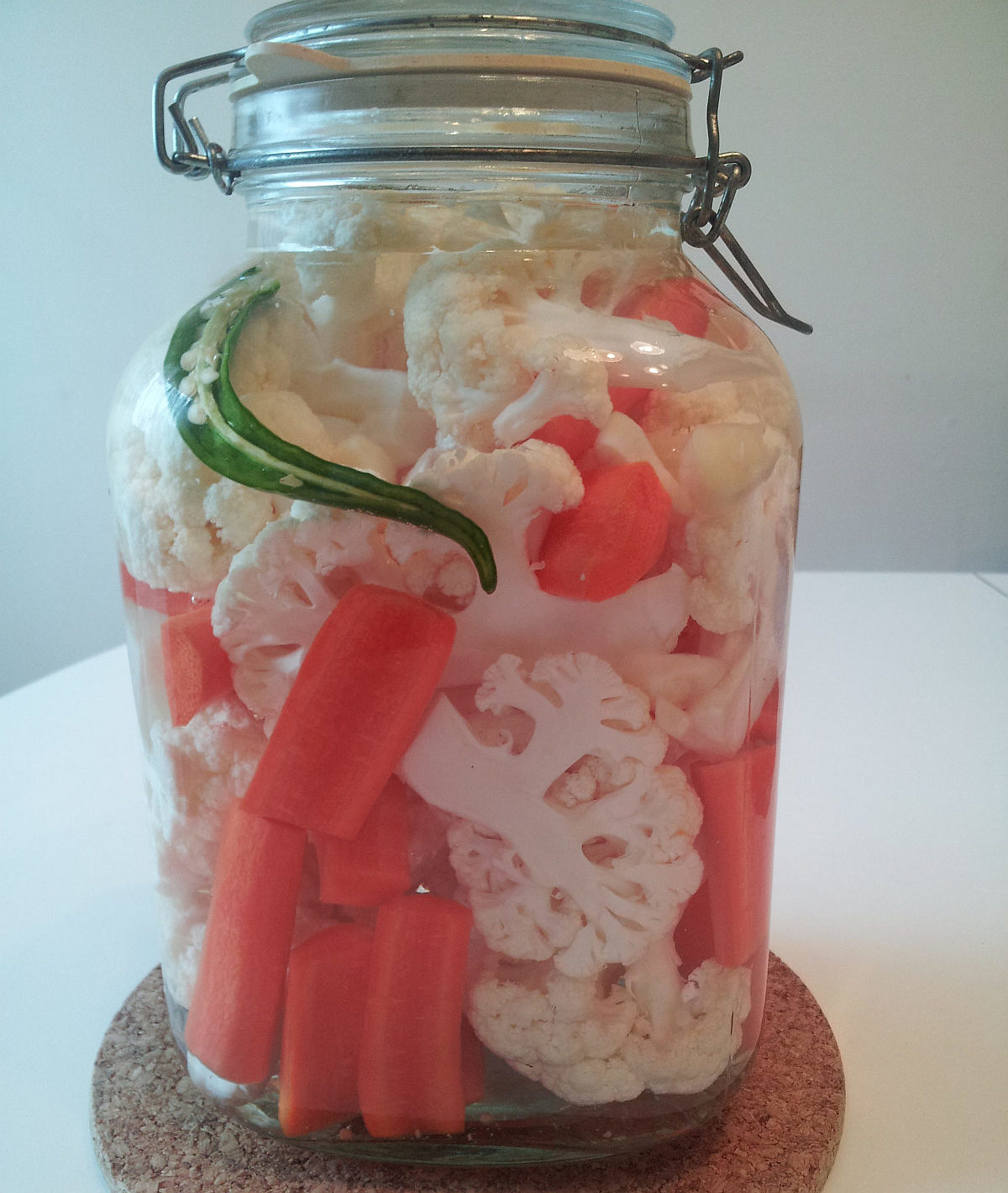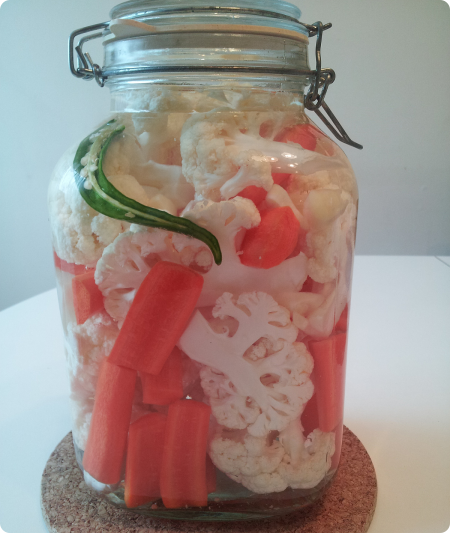The Benefits of Unpasteurized Fermented Foods
There are many health benefits from eating fermented foods, and historically, fermented foods have been known since the antiquity. There is a lot of scientific evidence that eating fermented foods benefits our health on a long and short term. There is almost no restriction to the age that fermented foods can be eaten, besides babies, anyone can eat them.
History of Fermented Foods
The earliest recordings of food processing through fermentation are dating some 9000 years ago, according to this article, in China. Fact is that fermenting foods and beverages is a science, and it is widely used now to process foods. Also called zymology, or zymurgy, the science of fermentation process studies the biochemical processes during the fermentation, and how the microorganisms interact with foods and drinks.
We don’t really know when humanity first fermented foods, but we know that the ancients loved sour pickles, and Cleopatra claimed that pickles were the reason behind her beauty.
Babylonians were fermenting beverages around 3000 BC, and old jars dating around 5000 BC, found in Iran, were use to make wine.
The famous Greek historian Herodotus, and Aristotle the famous philosopher, spoke about yogurt. The Greek physician Galen, (129-216 AD), recommended yogurt to his patients for liver and stomach.
On the American continent, the pre-Hispanic people were also fermenting beverages since 2000 BC.
Amerigo Vespucci, the famous navigator who named the American continent, understood the health value of fermented foods, and he loaded up pickled vegetables on his ships. This kept the sailors healthy, for the entire duration of the expeditions, curbing scurvy and other nutritional related issues.
More pickle history facts here.
The modern history of the fermented foods includes major discoveries in understanding the processes, and understanding why are fermented foods beneficial. Louis Pasteur was the first to discover and prove that food fermentation is caused by microorganisms. He also invented pasteurization, the process widely used now to prolong food’s shelf life.
Ilya Mechnikov was the first to propose the theory that bacteria in fermented foods are benefic to humans. His work inspired modern medicine, and science to further the research in the field.
Today probiotic supplements are a multibillion industry, partly because of the disappearance of the fermented foods in our diet. There is an increased interest for fermented milk products and lacto-fermented vegetables, and many companies and farms are starting to produce them, despite the lower shelf life.
Health Benefits of Fermented Foods
Fermented foods benefit us in two major ways, through the action of the massive probiotics, and through chemical changes that enhance the nutritional value of the foods. In fact, most of the unpasteurized, fermented foods are considered functional foods. This means they are not only providing a nutritional value, but they also provide medicinal function.
Not all probiotics are the same and different probiotics work in different areas. The same goes for fermented foods and drinks; they contain different probiotics, hence they would benefit us differently. There is still a lot of work to be done in the field, to understand which foods and drinks to eat for specific conditions, but you can start to eat fermented foods right now, they are delicious, and they are healthy.
- Improve Heart Health
According to the Journal of Cardiovascular Diseases Research, in this article, probiotics can help improve our heart health in a few ways, including lowering cholesterol, and decreasing cholesterol accumulation on blood vessels. - Oral Health, Anti-Cavities, Gums’ Health
http://www.ncbi.nlm.nih.gov/pubmed/19486429 - Protection Against Pathogen Microorganisms
According to Joshua J. Malago, Jos F. J. G. Koninkx, and R. Marinsek-Logar, in their Probiotic Bacteria and Enteric Infections, probiotics can protect us from pathogenic microorganisms in a few ways: they secrete acids and other antimicrobial substances, by competitive exclusion, and by increase of the epithelial barrier function. - Immunity Booster
According to the same source, probiotic intake causes various immune responses, such as increased phagocytic activity, stimulation of antibody responses, increased cytokine production, etc… - Improved intestinal health
Maybe the organ with the most direct benefit from eating fermented foods, the large intestine, is home to over 100 trillion microorganisms, accounting for almost 1Kg. Probiotics, and some fermented foods, are an amazing remedy for diarrhea. Chron’s disease, IBS, and IBD, are other area where probiotics shine. - Inflammation reduction
Probiotics have been proven to be a great help in chronic inflammation reduction. Opportunistic microorganisms, in order to multiply, generate inflammation in our body. By competing with opportunistic microorganisms, probiotics keeps them in balance. - Mental health
Probiotics can help to improve mental health, according to Timothy G. Dinan, Catherine Stanton, and John F. Cryan. The article published by the trio reveals that certain probiotics, (Lactobacillus helveticus and Bifidobacterium longum), can improve mood. Studies on rats have also shown similar evidence. American Gastroenterological Association has also confirmed this in a similar study published here. - Acne and other Skin Problems
According to Gut Pathogens journal, acne and other skin problems could be related to mental health, and the reason for the two issues might be an imbalance in the gut microbiota. - Urogenital Health
Urogenital infections can be treated with probiotics. The probiotics can be taken orally, or vaginally. Some of the probiotic strains that are effective for treating bacterial vaginosis are the most common ones such as Lactobacilli. More info here. Just applying yogurt on the affected area works wonders. - Cancer Prevention
A high levels of bifidobacteria in the colon has been shown to reduce the risk of colon cancer. Furthermore, there is strong evidence, that probiotics can kill cancer cells, take a look at this article for more info. Probiotics are proposed both as chemotherapy adjuvant, as well as a preventative measure. - Antibiotics Related Diarrhea, and Other Post Antibiotic Infections
Nowadays antibiotics are rarely prescribed, because of the associated side effects. Antibiotics kill all bacteria in our body, pathogenic or not. When all bacteria are killed, opportunistic yeast can grow faster because of the lack of competition. Eating fermented foods after taking antibiotics can prevent opportunistic yeast to outgrow our regular microbiota. The Journal of the American Medical Association has published an article on this. The Journal of Family Practice also recommends that when prescribing an antibiotic to pair it with a probiotic. - Fermented vegetables have a longer shelf life than fresh vegetables.
- The nutritional value of fermented foods is increased.
Fermented foods are higher in vitamins than their fresh counterpart. Also the minerals and vitamins in fermented foods are easier to absorb. New vitamins, and new beneficial compounds, inexistent in the fresh counterpart, develop during fermentation, including B vitamins, enzymes, omega-3 fatty acids, polyphenols, vitamin K2. This basically increases the nutritional value of a food. - Fermented foods are easier to digest
Fermented milk is easier to digest due to the modifications during the fermentation process. Proteins are changed, and lactose is reduced. Enzymes are also produced during this process, and enzymes are great helpers for digestion. Many people are sensitive to certain raw vegetables, such as cabbage, cucumbers, and peppers. After lacto-fermentation, these vegetables can be safely consumed even by those with high sensitivity. - Increases the acidity in stomach
Stomach acidity is essential for not only proper digestion, but for fighting pathogenic agents such as viruses, fungi, bacteria. Eating fermented foods, increases the acidity for those with problems. Dr. Mercola has an interesting article about that. - Improves Digestion
Digestion is improved in many ways while consuming fermented foods. As previously mentioned, balancing the acid levels is one way. Another way is by helping with enzymes, essential for a proper digestion and absorption. Bacteria in fermented foods also play a role in increasing digestion. - Treat Obesity
Fermented foods can help treat obesity, and prevent the onset of it. It looks like in many cases of obesity, the subjects have an imbalance in the gut microflora. Here is an article from New York Times on the subject, and here an article about how microbiota affects overweight problems. - Fermented Foods Are Safer than Raw Foods
Although E. coli is very rare nowadays, and with proper hygiene can be kept in control, it is extremely dangerous. E. Coli can be present on raw vegetables, and in raw milk. This one of the reasons raw milk is restricted for sale in North America. By fermenting foods, milk or vegetables, E. Coli is killed naturally, by lactic acid bacteria. A great bibliography on the subject can be found here: http://fbns.ncsu.edu/USDAARS/html/Fflbiblio1.htm
Check this article for a comprehensive list of fermented functional foods.


